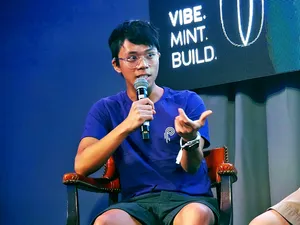By manipulating the timestamps of blocks to be added to the chain, a miner can replace other miners' main-chain blocks with their own blocks, obtaining the fees that would have gone to the other miners. The attack has been called an "Uncle Maker" attack because Ethereum refers to valid but not main-chain blocks as "uncles".
F2Pool co-founder Chun Wang responded on August 8 to the allegations against his mining pool, apparently acknowledging their behavior and suggesting that manipulating a vulnerability in a system is not a "blatant disregard [of] the rules" as the researchers had characterized it. He tweeted: "We respect the *consensus* as is. If you don't like the consensus, convince [Ethereum developer Tim Beiko] to send me another Announcement and change it." Quote-tweeting a tweet by the lead author of the paper who described F2Pool's technique, he wrote, "I can't stop appreciate this elegant implementation of what we've done over the past two years... A robust system must withstand all kind of tests."


























![Correspondences of my email sent to support on 15 Jun 2022: To: support@celsius.network Cc: ceo@celsius.network Dear Alex and Celcius support, I am writing this email to ask for your special consideration to allow me to make a small withdrawal on my BTC held in Celcius. I understand that Celsius made the decision to pause withdrawals in a volatile market condition, but do hope that you review my case and give me special permission. I am 5.5 months pregnant with my third child. I am expecting to give birth in early October and I do need the fund to pay for the hospital, doctor and baby items such as cot, clothes, nappies etc. I also need the fund to pay for school fees for my two other schools aged children. I have attached a recent scan of my baby and a letter from my obstetrician confirming my pregnancy and planning for admission into the hospital. Scan of my baby that am carrying: [ultrasound photo of a fetus]](https://primary-cdn.web3isgoinggreat.com/entryImages/resized/celsius-doc104_300.webp)
















